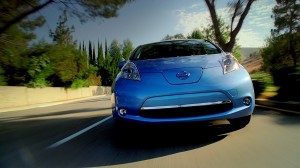I have to admit to being perplexed about the opposition to Elon Musk’s and other’s plan to force Volkswagen to invest in electric vehicles. Public health and social equity advocates teamed up to write a counter-response to Musk’s letter [PDF] to the California Air Resources Board, which had urged the EV option. The equity and public health leaders instead focus on the wrongs to VW drivers as well as the impact on low-income communities. They want immediate reparations to these groups, among other demands. They also don’t seem to see the value in requiring VW to do more on EVs.
From my perspective, the two approaches don’t necessarily have to be mutually exclusive. Why can’t we craft a punishment that benefits these communities and drivers and also pushes VW toward electric vehicles?
But the larger question is: what exactly is the long-term plan by these groups to clean up California’s highly polluted low-income communities and also provide them cheaper transportation? The answer to my mind is the immediate electrification of as much of our transportation system as possible, and Musk’s plan would help achieve that goal.
Cheap electric vehicles will dramatically clean the air for all Californians, and particularly for many low-income community members who live alongside busy highways. These vehicles are also cheaper to fuel on a monthly basis, leading to lower-cost travel for everyone. Yes, many power plants are disproportionately located in low-income communities of color, but the grid is getting cleaner and more reliant on utility-scale renewable power. And the pollution reduction benefits are still there with electrification.
Yes, electric vehicles are primarily for wealthy Californians — for now. But we need the wealthy to invest in batteries in order to bring the costs down for everyone, which is happening. In the next few years, we’ll see a number of mass-market options for long-range EVs.
And it’s not like many low-income people can’t afford an EV right now. Some used Nissan LEAFs are going for under $10,000, you can lease a Fiat EV for under $100 a month, and the state clean vehicle rebate program is now taking into account income levels to give lower-income Californians more money back on EV purchases. When you factor in the cheap transportation fuel from electricity, these are fantastic deals.
Finally, I share the concern that an EV-focused punishment could be rewarding VW with a new line of business. The NRG EV infrastructure “punishment” clearly has not gone well for the state. So any settlement along these lines truly need to be punitive, requiring VW to spend money it wouldn’t have otherwise, and on vehicles and infrastructure that won’t necessarily be good for the company’s bottom line but would be good for the public.
But getting VW to invest in electric vehicles as a general principle is not only a good thing for all Californians, it’s especially critical for low-income residents. Indeed, to my mind it’s the only viable way forward to clean their air and provide them vital economic benefits at the same time.
Leave a Reply
You must be logged in to post a comment.



